Properly certified eclipse glasses are one of the best value, easiest ways to safely observe a solar eclipse.
There's a partial solar eclipse visible from the UK on Saturday 29 March 2025 beginning at around 10am, making it a great event for beginners and families.
A solar eclipse is one of the most spectacular displays in nature, providing a life-changing, ethereal experience that many people never get to witness.
However, if you are observing a solar eclipse it's important to do so safely, as looking at the Sun without proper equipment can cause serious damage to your vision.
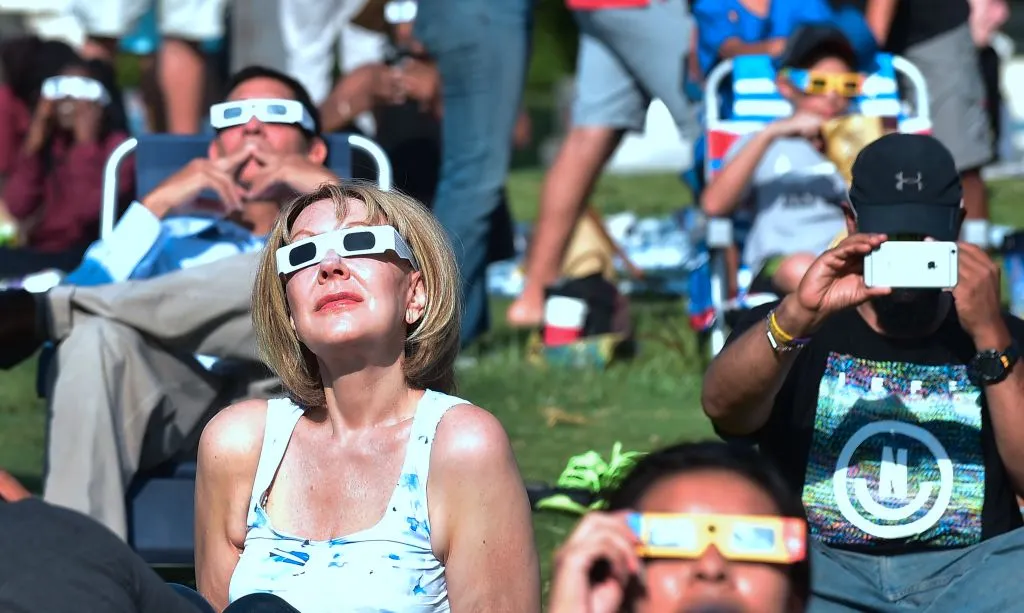
You should never look directly at the Sun without the protection of a certified solar filter or solar telescope.
And if these sound like high tech astronomical equipment, you can also use eclipse glasses.
Put on a pair and you can observe watch a solar eclipse safely, as the silhouette of the Moon passes in front of the Sun.
Find out more about how to safely observe a solar eclipse and observing during the daytime.
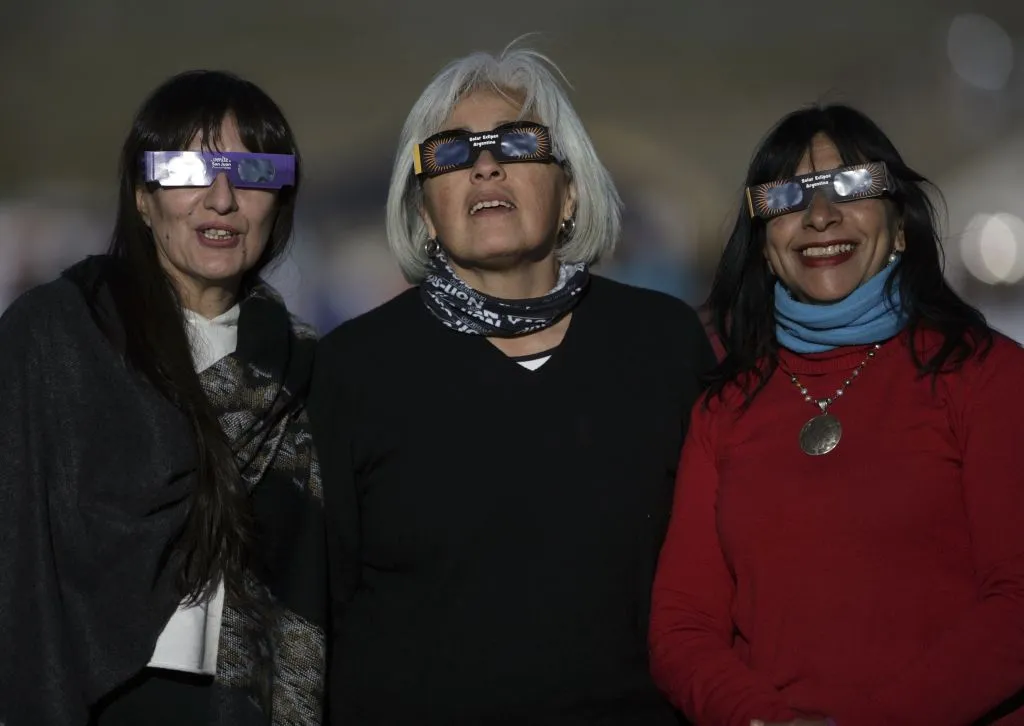
Make sure your eclipse glasses are safe
Before putting your eclipse glasses to use, you must ensure there are no pinprick holes in the lenses.
This is as true for eclipse glasses that have been stored away since the last solar eclipse, as it is for brand new ones: make no assumptions!
In the event that you do discover your eclipse glasses are damaged, do not attempt to fix them: get your hands on a brand new pair.
You also need to make sure you buy properly certified solar eclipse glasses from a reputable manufacturer: accept no substitutes, as buying homemade versions risks damaging your eyesight.
The International Organization for Standardization recommends only buying eclipse glasses that have the ISO 12312-2:2015 certificate, as these are certified as being safe for observing the Sun, including during a solar eclipse.
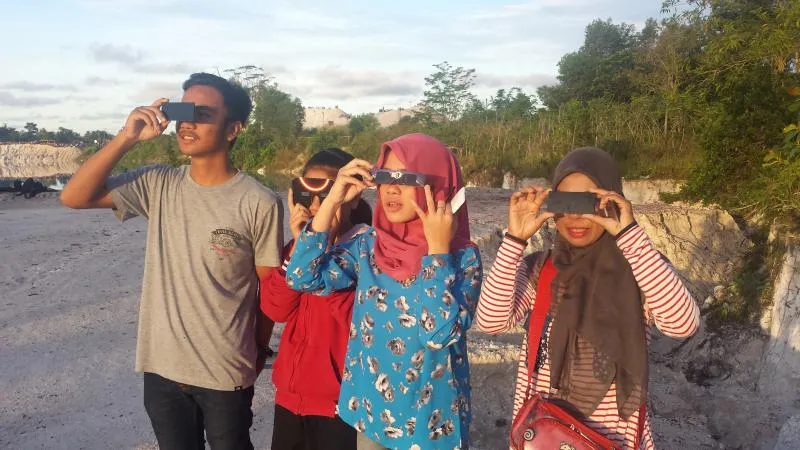
Myths abound regarding using smoked glass for observing solar eclipses, and we've even heard one erroneous claim that black bin liners can be used as a material for safe solar observing, but these methods are both ineffective and dangerous.
You should only use eclipse glasses or other certified solar observing equipment when observing an eclipse.
However, during a total solar eclipse, at the point of totality - when the Sun is completely covered by the silhouette of the Moon - many viewers take this opportunity to remove their eclipse glasses and enjoy the full spectacle.
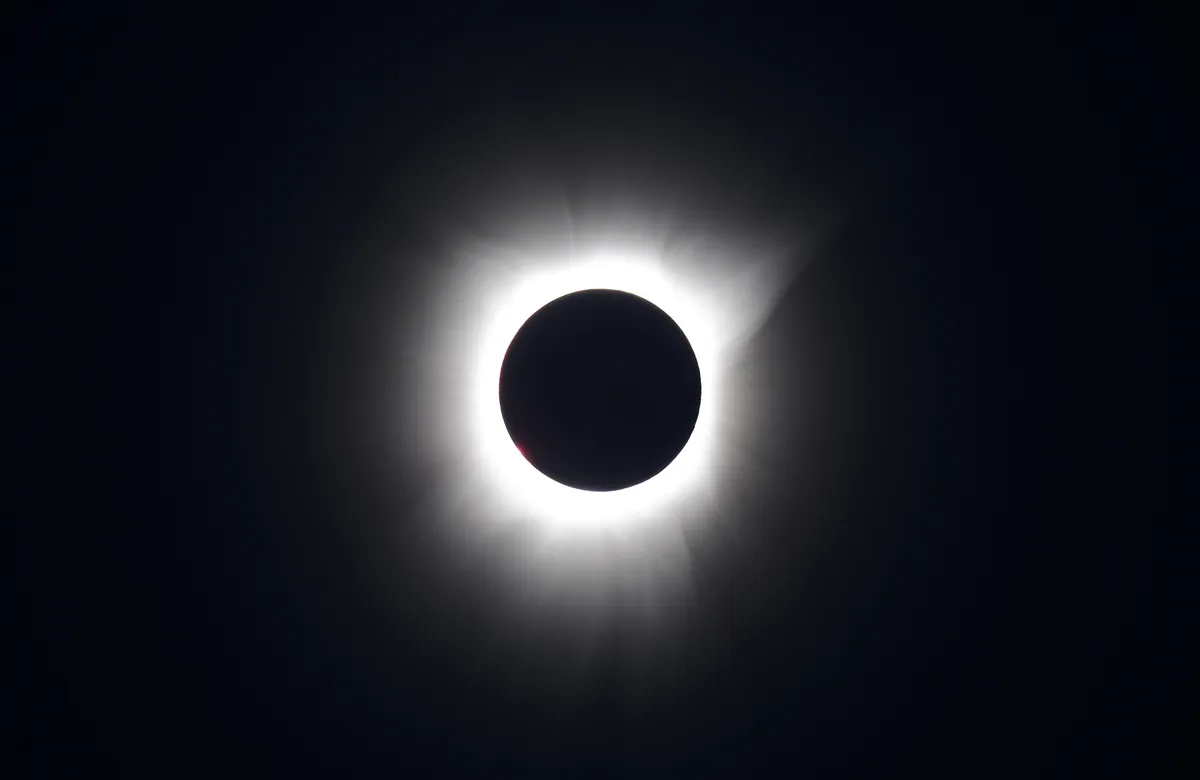
If you do this, don't forget to put your glasses back on once the Moon's silhouette begins drifting away from the solar disc again.
Read our guide to find out when the next eclipse is taking place, and get ready now by making sure you and your fellow observers have a good pair of eclipse glasses to enjoy the event safely.
Below is a selection of safe, certified eclipse glasses that can be used to observe one of nature's most incredible spectacles.
For more advice, read our guide on how to make sure solar eclipse glasses are safe, with tips from the Amercian Astronomical Association.
Safe solar eclipse glasses
Baader solar eclipse glasses
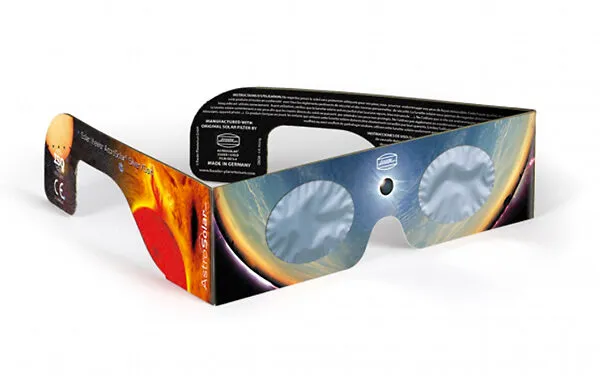
Buy from Baader UK
Baader are well-known for their solar observing filters and film, so it's little surprise that the company's solar eclipse glasses are among the most popular and trusted of all models available to buy.
As you would expect, the Baader eclipse glasses are CE / ISO certified, conforming to the ISO 12312-2:2015 standard.
They reduce the intensity of sunlight by 99.999%, offer 100% UV/IR protection and come with instructions in English, German, French and Spanish.
Lunt solar eclipse glasses
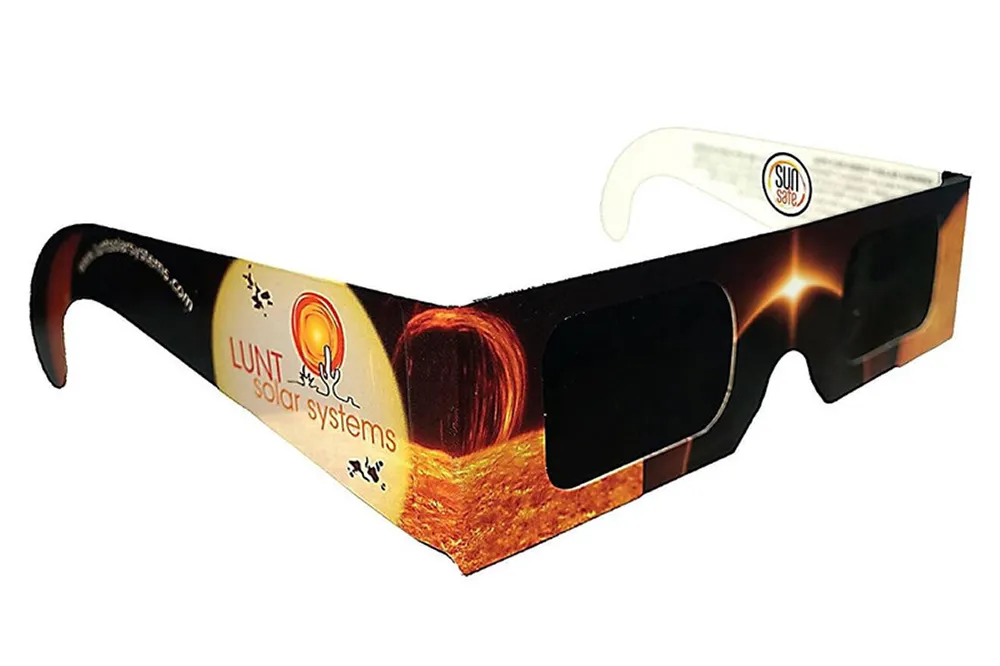
SQUIRREL_13058055
Just like Baader, Lunt have built up a reputation for producing safe, trustworthy and good quality solar observing equipment.
These Lunt solar eclipse glasses are approved listed on the American Astronomical Society's list of reputable eclipse glasses vendors, but most importantly they have that vital ISO and CE safety certification.
They filter out 100% of UV and IR rays, and 99.999% of visible sunlight.
Thousand Oaks Solar Filter Glasses
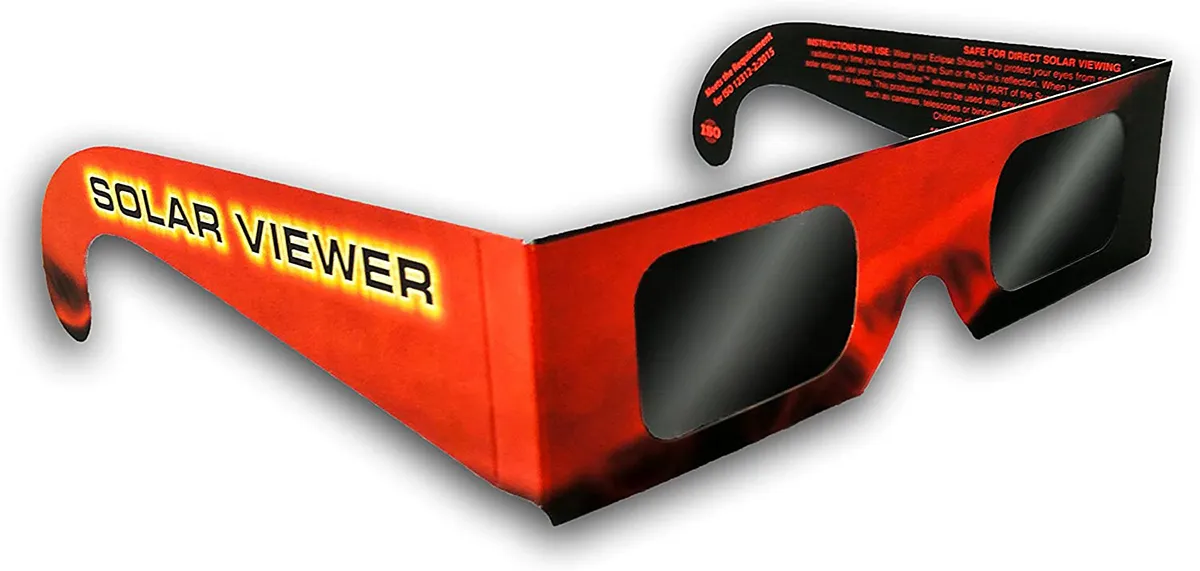
SQUIRREL_13060915
Well-known for their telescope filters, Thousand Oaks Optical also produce a range of solar eclipse glasses for safe observing of the Sun and those beautiful moments before and after totality.
These glasses can be used for regular solar observing and use black polymer as a filtering material.
They can be bought directly from the company’s website, but various online retailers offer them in bundles of 5, 10, 25 and 50, making them a good option for schools, astronomy societies and solar eclipse star parties.
Baader Planetarium AstroSolar Solar Filter
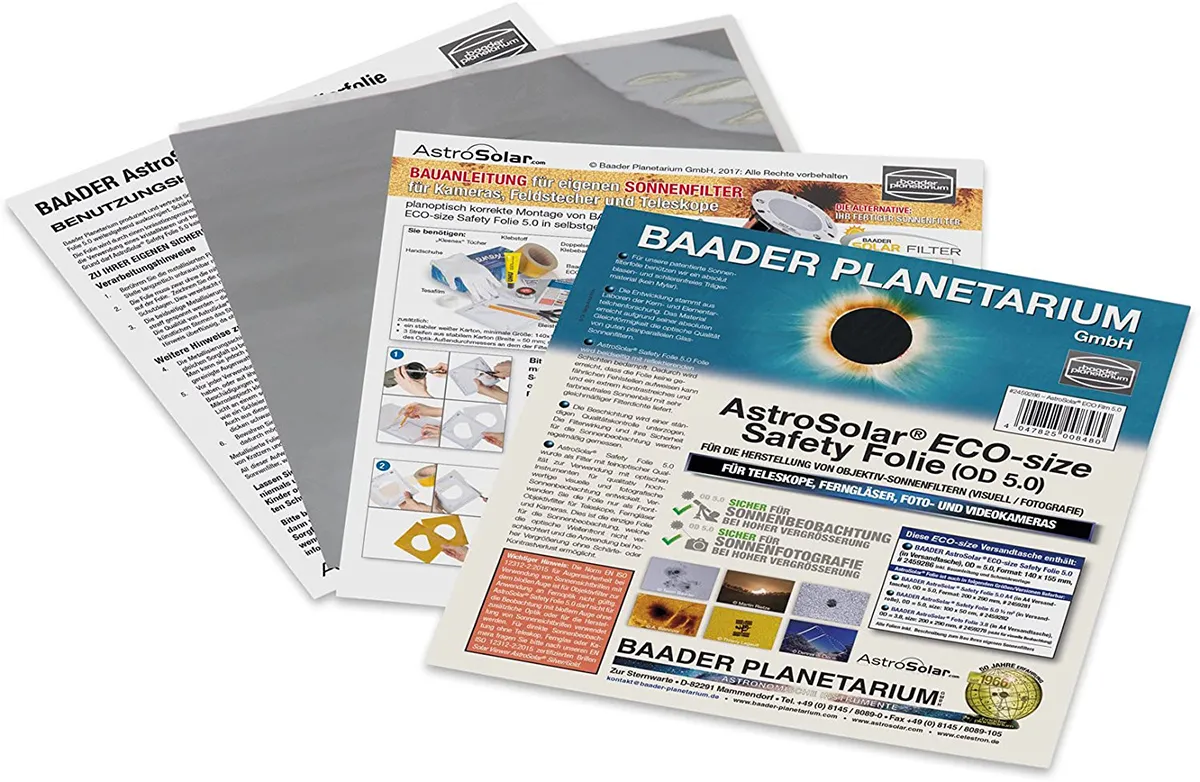
SQUIRREL_13060916
One other product useful for solar observing and solar eclipse viewing is properly certified solar filter foil.
This Baader solar safety foil can be used on small telescopes, finderscopes, binoculars and spotting scopes to turn your instrument into a safe solar-observing tool.
Be sure to follow the supplied instructions and make sure there are no scratches or pinholes in your safety film before use.
As with all solar observing, the advice is to only attempt if you are an experienced observer who knows what they're doing. If in doubt, don't try it.
If you observe or photograph an eclipse, share your images and experiences with us by emailing contactus@skyatnightmagazine.com